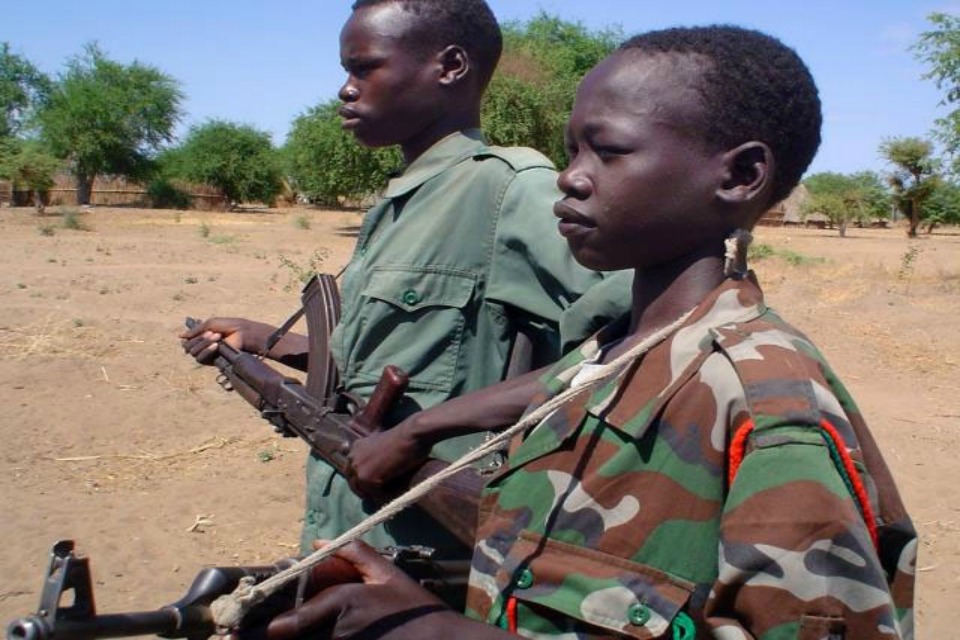"How a society treats its most vulnerable is always the measure of its humanity."
Statement by Ambassador Matthew Rycroft of the UK Mission to the UN at the Security Council Open Debate on Children and Armed Conflict

Thank you Mr President for convening this open debate. Minister, I welcome the leadership that Malaysia has shown on this important issue and I’m pleased at the unanimous adoption of resolution 2225.
I also thank the Secretary-General, Special Representative Zerrougui and UNICEF Deputy Executive Director Brandt for their briefings. And I welcome the powerful words of Ms. Eunice Apio. Your insights into the consequences of abduction require us all to reflect deeply. And you have underscored the importance of this Council hearing from those working directly on these issues.
Mr President,
Last week, a seventeen year old British boy – a child –died in an ISIL attack on an oil refinery in Iraq. His name was Talha Asmal. To those who knew him, he was an “ordinary Yorkshire lad”. He was friendly, kind; he worked hard at school. He should have been looking forward to university. Instead, he died a long way from home. Amid the tragedy that left eleven people dead, a sad truth emerged. Talha was not an innocent bystander caught up in the attack; he was a suicide bomber.
Talha was a perpetrator, but also a victim. He was a victim of ISIL and its sickening propaganda. He was a victim of violent extremists too cowardly to act themselves. And he was a victim of an increasingly violent world that doesn’t distinguish between children and adults in conflict.
I do not seek to excuse Talha’s actions. What he did was barbaric and un-Islamic. But in highlighting this example from my own country, I hope to illustrate that we all face challenges to do with children and armed conflict. It is truly a global issue. And it requires a global response.
Mr President,
Through today’s resolution we have taken a step forward. The expansion of the listing criteria to include abductions will enhance our ability to hold perpetrators to account. The need is great. In February this year at least 89 boys were kidnapped in Upper Nile State in South Sudan, in addition to the hundreds of children abducted by ISIL and Boko Haram, as our Nigerian colleague so eloquently described, in 2014 – making that arguably the worst year for children in recent memory.
These sick groups abduct children to use them forcibly as child soldiers. They bind them into sexual slavery and turn them into weapons of war to terrorize families and communities. The trigger in the new resolution is a clear declaration from the Security Council that we will not tolerate the abduction of children in any form or for any purpose.
But listing is just the first step towards ending impunity – we want to see more progress on ensuring accountability. States must exercise their national jurisdiction to bring those listed to account. And if they fail to do so, the International Criminal Court has an important role to play.
As the Secretary-General’s report notes, the transfer to the ICC of Dominic Ongwen – who himself was abducted as a child in 1989 – shows that we must take a long term approach. We have seen some progress this year, including the conviction and sentencing of Thomas Lubanga. And we welcome that Bosco Ntaganda’s trial will commence shortly.
Mr President,
More needs to be done. Look at Syria. We cannot afford to become numb to the recruitment, detention, torture, killing and maiming of children in that country. Whether by the regime, ISIL or others, there is a clear call for action by the international community. The Secretary-General’s report sets out the case; 889 schools attacked, 413 medical facilities damaged, 368 children killed, 771 injured, all in 2014. The Secretary-General’s report shows that the vast majority of these acts were committed by Syrian Government Forces. As such, the United Kingdom believes adamantly that the situation in Syria must be referred to the ICC.
There are ways out. In Syria, we maintain that this must be through a political solution. There can be no military solution. We support the efforts of Special Envoy De Mistura to take forward the implementation of the Geneva Communique, and ultimately enable the Syrian people to decide their own future.
And across the world, there is a way out for all parties listed in the Secretary-General’s report, whether Government or non-state armed groups. They can adopt concrete, time-bound action plans to halt violations and abuses. Eventually this can lead to de-listing.
Action Plans work. We congratulate Chad for the successful de-listing of the Chadian National Army last year following the full implementation of their Action Plan. I call on all listed parties, Governments and non-state armed groups, to follow their example.
Mr President,
Let me close with this final point. How a society treats its most vulnerable – whether children, the infirm or the elderly – is always the measure of its humanity. Even more so during instability and conflict. When a society begins to disregard the vulnerable and their rights, instability and conflict will only grow.
The litany of violations and abuses against children in the Secretary-General’s report is evidence of that spread. It has spread so far that children across the world – whether from Syria or from Yorkshire - are now caught up as both victims and tools of conflict. Through this resolution today we have taken one step forward to ending that. But many more steps will be needed if we are going to eradicate this problem. We cannot waver in our resolve.
Thank you Mr President.